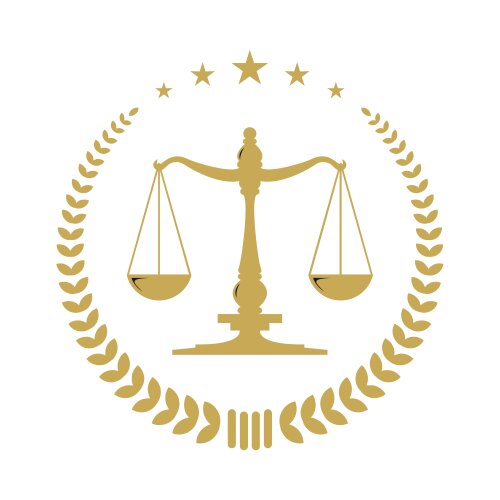Best Faith-Based Law Lawyers in Islamabad
Share your needs with us, get contacted by law firms.
Free. Takes 2 min.
List of the best lawyers in Islamabad, Pakistan
About Faith-Based Law in Islamabad, Pakistan
Faith-Based Law, also known as religious law, is an integral part of the legal system in Islamabad, Pakistan, as the country strongly identifies with Islamic principles. The legal framework combines elements of Sharia (Islamic law), customary practices, and statutory laws. Faith-Based Law governs personal status issues, including marriage, divorce, inheritance, and family relations, and is crucial in addressing conflicts related to principles of faith. Islamabad, being the capital city, has a structured legal system to handle such matters in faith-sensitive ways, ensuring cultural and religious adherence while maintaining legal standards.
Why You May Need a Lawyer
There are numerous situations in Faith-Based Law where legal counsel may be essential. These include:
- Negotiating marriage contracts and ensuring compliance with Islamic marital laws.
- Managing the complexities of divorce, including financial settlements and custody arrangements, in line with religious prescriptions.
- Handling inheritance disputes, which require a detailed understanding of Islamic inheritance principles.
- Resolving family disputes involving custody or guardianship in accordance with faith-based perspectives.
- Seeking guidance on fulfilling religious obligations through legal means, especially in personal or familial matters.
Local Laws Overview
The legal landscape in Islamabad reflects the convergence of Islamic law with statutory regulations. Key aspects of Faith-Based Law include:
- Marriage and Divorce: Governed by the Muslim Family Laws Ordinance of 1961, which provides guidelines for lawful nuptials and their dissolution.
- Inheritance: Guided by Islamic principles, specifically the Quranic injunctions, ensuring a just distribution of assets among heirs.
- Human Rights and Obligations: Balances religious duties with individual rights, as dictated by the Constitution of Pakistan, where fundamental rights intersect with religious practices.
Frequently Asked Questions
What role does Faith-Based Law play in Pakistan's legal system?
Faith-Based Law is woven into the fabric of Pakistan's legal system, especially in personal status laws where Islamic principles are directly applied.
Can non-Muslims seek adjudication under Faith-Based Law in Islamabad?
Non-Muslims typically follow their respective personal laws; however, inter-faith disputes might be adjudicated using a blend of civil and Faith-Based Law principles.
How is divorce handled under Faith-Based Law?
Divorce under Faith-Based Law entails specific rituals and formalities, such as Talaq for men and Khula for women, with respect to the Marriage Ordinance.
Is there legal aid available for those unable to afford a lawyer?
Yes, there are governmental bodies and NGOs in Islamabad offering legal aid to those in need, especially for family law matters.
What is required to establish a valid marriage under Faith-Based Law?
A valid marriage under Faith-Based Law requires mutual consent, a marriage contract (Nikah Nama), and witnesses.
How are inheritance disputes resolved?
Inheritance disputes are resolved by applying the Islamic law of succession, which is notably aligned with Quranic stipulations for asset division.
How does Sharia law impact everyday legal rights?
Sharia law primarily guides personal and family matters but must be interpreted alongside Pakistan's constitutional laws, impacting everyday rights harmony.
Where can I learn more about my rights under Faith-Based Law?
Consulting a lawyer or legal expert who specializes in this field is advised for a detailed understanding of your rights and obligations.
What documentation is necessary for faith-based legal proceedings?
Key documents include marriage contracts, identity proofs, property records, as well as any legal agreements or precedents in question.
Is mediation a part of resolving faith-based disputes?
Mediation is often encouraged to amicably resolve disputes in a way that respects religious tenets, before resorting to formal litigation.
Additional Resources
For further assistance, you may consider reaching out to the following resources:
- Ministry of Religious Affairs and Interfaith Harmony, Islamabad
- Pakistan Bar Council for connecting with specialized lawyers
- The Federal Shariat Court for matters directly pertaining to Islamic jurisprudence
- Legal aid NGOs, such as the Aurat Foundation, for support in family and personal laws
Next Steps
If you find yourself in need of legal assistance regarding Faith-Based Law, consider the following steps:
- Identify your specific legal need and gather relevant documentation.
- Consult with a specialized legal expert in Faith-Based or family law to explore your options.
- Engage with local legal aid services if necessary to obtain affordable legal support.
- Explore mediation or arbitration as potential methods for resolving disputes before considering litigation.
Lawzana helps you find the best lawyers and law firms in Islamabad through a curated and pre-screened list of qualified legal professionals. Our platform offers rankings and detailed profiles of attorneys and law firms, allowing you to compare based on practice areas, including Faith-Based Law, experience, and client feedback.
Each profile includes a description of the firm's areas of practice, client reviews, team members and partners, year of establishment, spoken languages, office locations, contact information, social media presence, and any published articles or resources. Most firms on our platform speak English and are experienced in both local and international legal matters.
Get a quote from top-rated law firms in Islamabad, Pakistan — quickly, securely, and without unnecessary hassle.
Disclaimer:
The information provided on this page is for general informational purposes only and does not constitute legal advice. While we strive to ensure the accuracy and relevance of the content, legal information may change over time, and interpretations of the law can vary. You should always consult with a qualified legal professional for advice specific to your situation.
We disclaim all liability for actions taken or not taken based on the content of this page. If you believe any information is incorrect or outdated, please contact us, and we will review and update it where appropriate.

















